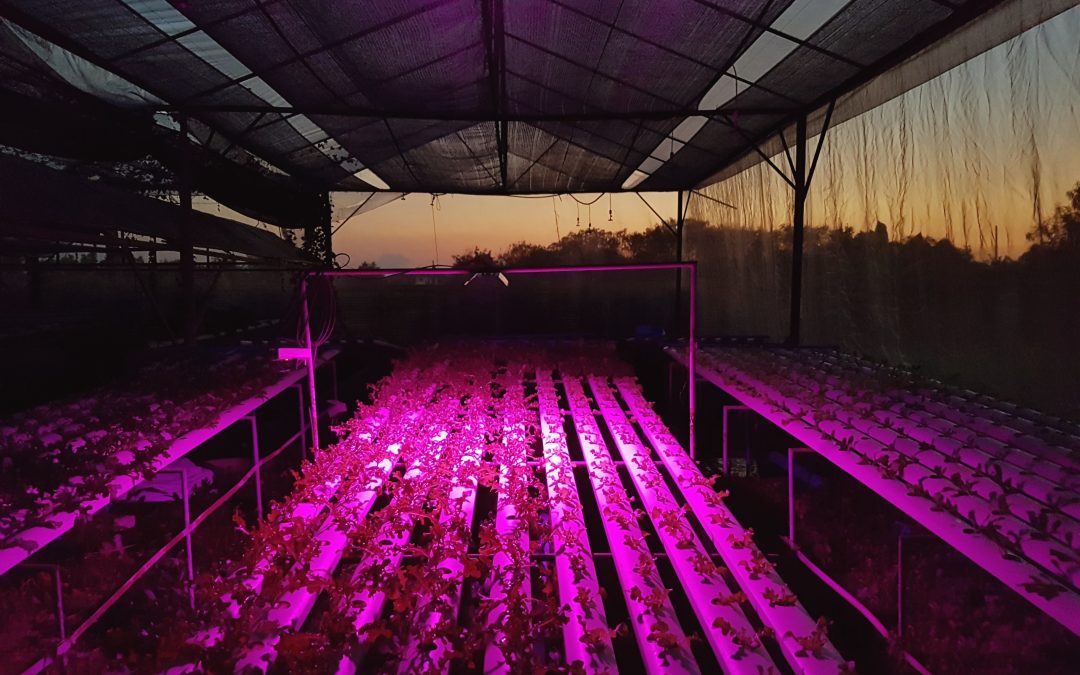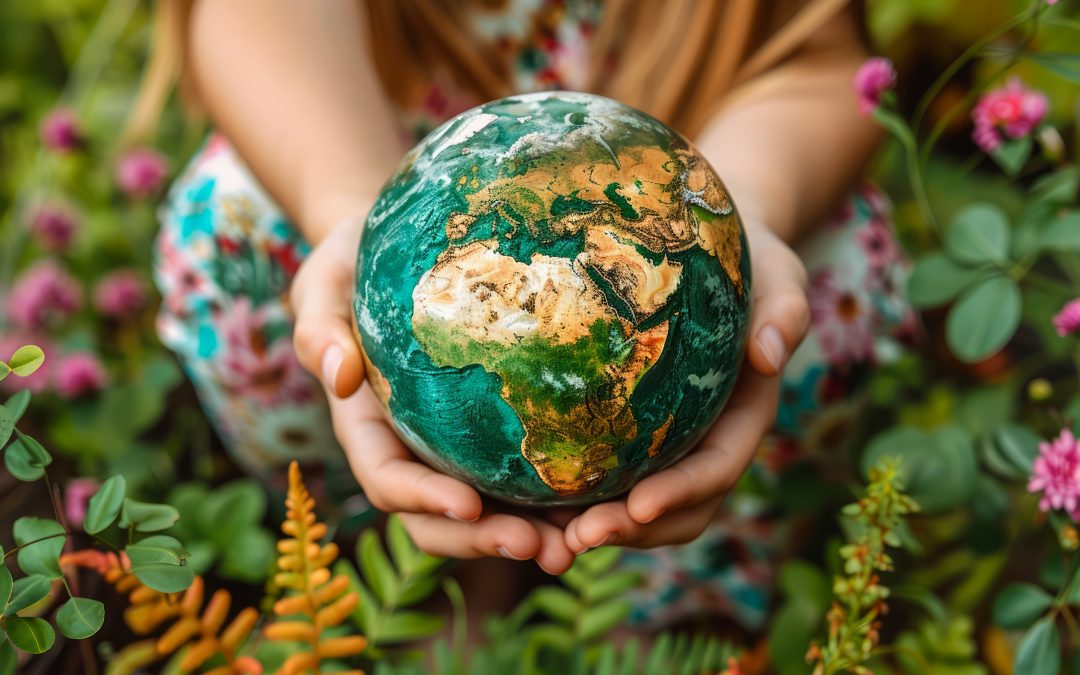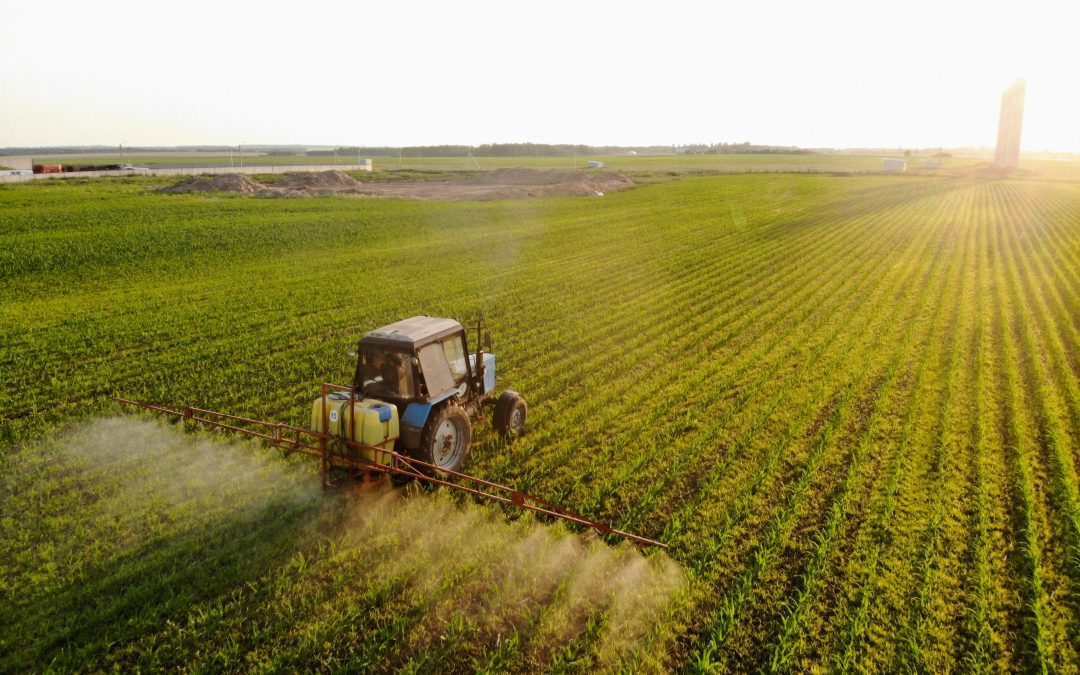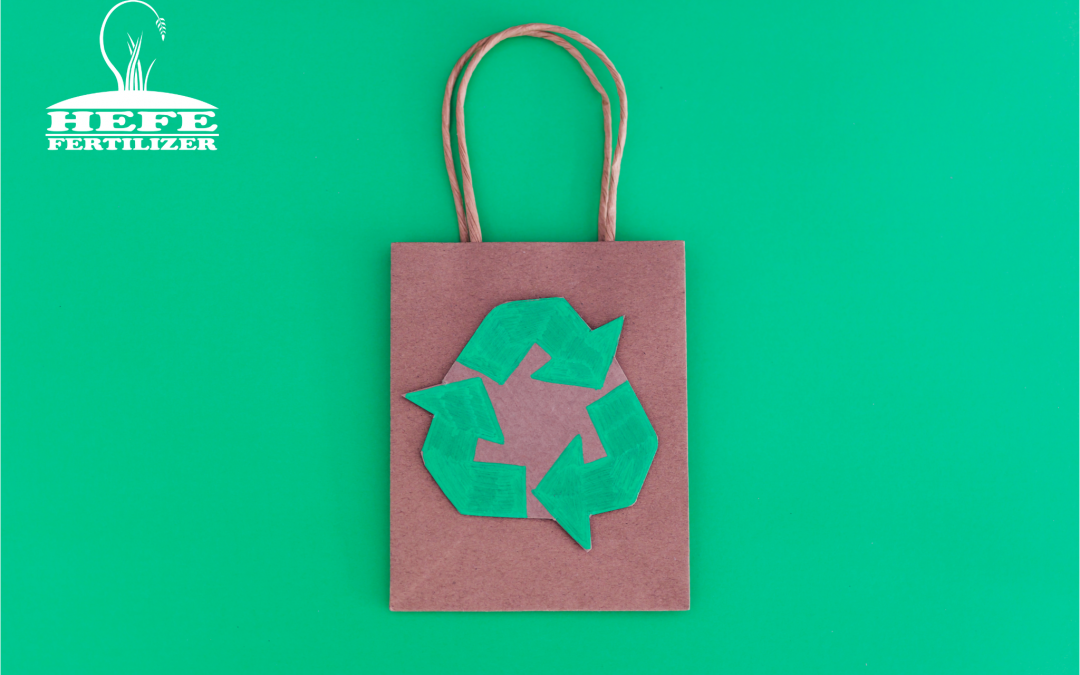
by HefeFertilizer | May 2, 2024 | Sin categoría
Shedding Light on a Bright Future: Enhancing Pepper Growth with LED Technology
In a world where technological innovation is advancing by leaps and bounds, agriculture is not left behind. A recent study has shed light on the revolutionary impact that LED lights can have on pepper cultivation, offering new insights to improve agricultural production and food quality.
LED lights, known for their energy efficiency and ability to emit different wavelengths of light, have been the subject of research in various areas, from urban lighting to medicine. However, their potential in agriculture has been less explored until now.
The study, conducted by a team of renowned researchers in the field of precision agriculture, focused on analyzing how exposing peppers to different spectra of LED light affects their growth, development, and nutritional content. The results were astonishing.
Firstly, it was found that the quality of LED light has a significant impact on the morphology of pepper plants, affecting their height, leaf size, and fruit development. By modulating the intensity and spectrum of light, researchers were able to influence the shape and yield of peppers, opening the door to new personalized cultivation strategies.
Additionally, the study revealed that LED light can increase the content of bioactive compounds in peppers, such as antioxidants and vitamins, which are beneficial to human health. This suggests that LED technology can not only improve agricultural productivity but also the nutritional quality of the resulting food.
The findings of this study have significant implications for modern agriculture. The ability to manipulate the light environment of plants using LED lights offers farmers a powerful tool to optimize crop growth, increase resource efficiency, and improve the quality of agricultural products.
Furthermore, this study underscores the importance of interdisciplinary research and the application of emerging technologies in agriculture. Collaboration between scientists, engineers, and farmers can lead to innovations that transform the way we cultivate our food and help us address the challenges of climate change and food security.
In summary, the study on the effects of LED lights on pepper cultivation represents an exciting step forward in the quest for sustainable and efficient solutions for 21st-century agriculture. With the potential to improve both productivity and food quality, LED lights are illuminating the path to a brighter future for agriculture.

by HefeFertilizer | Apr 22, 2024 | NEWS
Every April 22nd, the world comes together to celebrate Earth Day, a date aimed at raising awareness about the importance of protecting our planet and promoting actions that foster environmental sustainability. This day, which began to be celebrated in 1970, has gained even greater relevance today, where global environmental challenges demand immediate attention and action. One of the fundamental aspects in this struggle for environmental preservation is agriculture, an activity that, paradoxically, can have both negative and positive impacts on the terrestrial ecosystem.
The Vital Role of Agriculture
Agriculture is the cornerstone of human civilization. Since the dawn of history, agriculture has been the basis for the survival and development of societies. However, the way agriculture is practiced has evolved greatly over the centuries, and its impact on the environment has changed accordingly.
Today, agriculture not only faces the challenge of feeding a constantly growing world population but also the imperative of doing so in a sustainable and environmentally friendly manner. Sustainable agriculture is defined as that which meets current food production needs without compromising the ability of future generations to do the same. In other words, it is about producing food in a way that protects natural resources and minimizes environmental impact.
Agriculture and the Environment
The link between agriculture and the environment is complex and multifaceted. On one hand, agriculture is one of the main causes of deforestation, loss of biodiversity, water pollution, and greenhouse gas emissions. The expansion of farmland at the expense of forests and other natural ecosystems has led to the destruction of critical habitats for numerous species, thus contributing to global biodiversity loss. Additionally, the intensive use of pesticides and fertilizers in agriculture can contaminate soil and water, negatively affecting human health and the environment overall.
On the other hand, agriculture can also play a fundamental role in environmental conservation and restoration. Sustainable agricultural practices, such as organic farming, agroecology, and regenerative agriculture, are designed to minimize negative environmental impacts and promote the conservation of natural resources. These practices include the use of cultivation techniques that improve soil health, water conservation, crop diversification, and the promotion of biodiversity on farmsteads.
Earth Day and Sustainable Agriculture
Earth Day is an opportunity to reflect on the relationship between agriculture and the environment and to reaffirm our commitment to promoting sustainable agricultural practices. It is a reminder that if we want to protect our planet and ensure a healthy future for future generations, we must transform the way we produce and consume food.
In this regard, it is important for governments, agricultural businesses, farmers, and society as a whole to work together to promote the adoption of sustainable agricultural practices and encourage responsible production and consumption of food. This may involve the implementation of public policies that incentivize sustainable agriculture, investment in research and development of innovative agricultural practices, and education and awareness-raising of the public about the importance of agriculture for the health of the planet.
Earth Day is an occasion to reflect on the state of our planet and reaffirm our commitment to its protection and preservation. In this context, agriculture plays a crucial role, as both its negative and positive impacts on the environment are significant. Promoting sustainable agricultural practices is essential to ensuring a healthy future for our planet and future generations. Therefore, on this Earth Day, let us renew our commitment to working together towards a more sustainable and equitable future for all.

by HefeFertilizer | Apr 9, 2024 | NEWS
In the fields that compose the landscape of our planet, the interaction between soil and plants is a choreography that determines the fate of harvests. Behind every ear of golden corn, every row of lush tomatoes, and every wheat sprout swaying in the breeze lies a fundamental secret: the importance of using fertilizers in the cultivation of healthy and abundant food.
Fertilizers are an essential tool in modern agriculture. They are designed to supplement the essential nutrients that plants need to grow and thrive. In a world where the demand for food is constantly increasing due to population growth, maximizing crop yield has become more critical than ever. This is where fertilizers come into play and the importance of their use. They act as the necessary boost to ensure abundant and high-quality harvests.
Essential Nutrients for Plant Growth
Plants need a variety of nutrients to develop properly. These nutrients, including nitrogen, phosphorus, potassium, calcium, magnesium, and a range of micronutrients, are absorbed from the soil through the roots. They are used in a series of key biological processes, from photosynthesis to the formation of cellular structures.
The soil naturally contains a variable amount of these nutrients, but over time, intensive agriculture and continuous cropping can deplete the levels available in the soil. This is where fertilizer application becomes an essential practice to maintain soil fertility and ensure that plants have access to the nutrients they need to thrive.
Impact of Fertilizers on Crop Yield
Proper fertilizer application can have a significant impact on crop yield and quality. Nitrogen, for example, is crucial for plant growth and protein production. A lack of nitrogen can lead to poor plant growth and a decrease in crop production. The addition of nitrogen fertilizers can increase plant growth and significantly improve crop yield.
Similarly, phosphorus is vital for root development and the formation of flowers and fruits. Soils low in phosphorus can limit plant growth and reduce crop quality. The application of phosphorus-containing fertilizers can improve plant health and increase crop production.
Sustainability and Fertilizer Management
While fertilizers are an invaluable tool for improving crop performance, their excessive or improper use can have negative consequences for the environment. Excess nutrients can leach into groundwater or runoff into nearby bodies of water, causing eutrophication and damaging aquatic ecosystems.
Therefore, it is crucial to adopt sustainable fertilizer management practices that balance the need to maximize crop yield with environmental protection. This may include the use of slow-release fertilizers, precise application based on soil analysis, crop rotation, and the use of cover crops to improve soil health and reduce nutrient loss.
In conclusion, fertilizers play a fundamental role in the success of agricultural crops. They provide the necessary nutrients for healthy and abundant growth. However, their use must be carefully managed to ensure the long-term sustainability of agriculture and environmental protection. By responsibly harnessing the power of fertilizers, we can cultivate nutritious and abundant food for future generations.

by HefeFertilizer | Mar 27, 2024 | NEWS
In an ambitious move towards sustainability and environmental protection, the European Union (EU) has recently announced its decision to require all food packaging marketed in its territory to be recyclable and free of harmful chemicals. This initiative, which seeks to address the environmental challenges associated with packaging waste and chemical contamination, marks a significant milestone in the EU’s efforts to promote more responsible and environmentally friendly business practices.
The announcement comes at a crucial time, when public awareness of environmental issues, such as plastic pollution and exposure to hazardous chemicals, is on the rise. With growing concern about the impact of food packaging on human health and the environment, the EU has taken the lead in implementing concrete measures to address these problems.
One of the main provisions of this new regulation is the obligation for all food packaging to be recyclable. According to data provided by the European Commission, it is estimated that currently only 30% of plastic food packaging used in the EU is recyclable, which means that the vast majority of this packaging ends up in landfills or in the environment, contributing to pollution and waste of natural resources. With this new regulation, this figure is expected to increase significantly and reach a 100% recyclability rate by 2030.
In addition to the recyclability requirement, the EU is also cracking down on the use of harmful chemicals in food packaging. According to a report by the European Chemicals Agency (ECHA), it is estimated that more than 600,000 tons of hazardous chemicals are used annually in the manufacture of food packaging in the EU. These substances, which include phthalates, bisphenols and PFASs, have been the subject of concern due to their potential adverse effects on human health and the environment. The new regulation is expected to drastically reduce the use of these chemicals and ensure the safety of food packaging for European consumers.
This initiative will not only benefit European consumers by ensuring the safety of the food products they consume, but will also have a positive impact on the food industry and the packaging sector. Packaging manufacturers and food producers are expected to quickly adapt their practices to comply with the new regulations, which will create opportunities for innovation and investment in more sustainable packaging solutions.
In summary, the European Union’s decision to require all food packaging to be recyclable and chemical-free represents an important step forward in the fight against pollution and the promotion of more responsible business practices. While the challenges are real, the long-term benefits to human health and the environment fully justify these efforts. The EU is setting a precedent for the rest of the world in sustainability and environmental protection, demonstrating that it is possible to strike a balance between economic development and preserving our planet for future generations.




